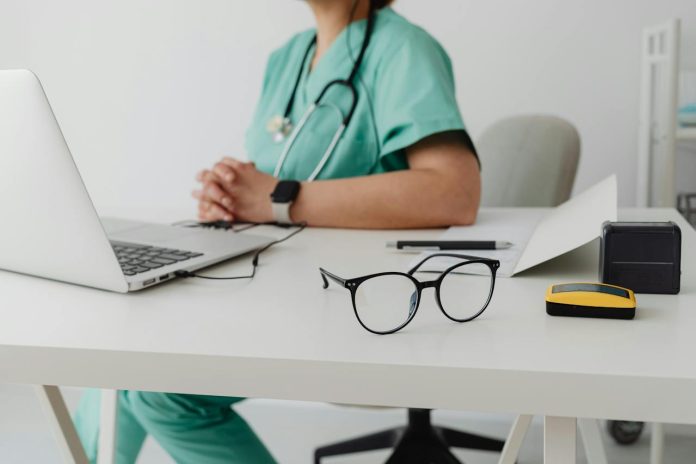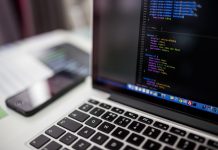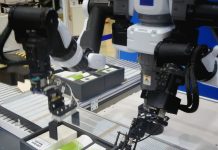It is often said that data is one of the most valuable resources for businesses. And it is fully true. But it is true not only about business. The same principle works in healthcare as well. Doctors rely on data in all the medical processes from defining the right diagnoses to choosing the most efficient treatment. It means that the quality of medical services, as well as the health and even lives of patients, greatly depend on the quality and accuracy of data that doctors have to work with.
For many years, medical staff had to rely on the information that was collected, processed, and kept fully manually which led to dozens of mistakes and cases of data loss. Nevertheless, modern technologies can change the game once and forever all.
Among the technologies that have the greatest power to contribute to the general enhancement of the quality of medical services, we should name the Internet of Things and Artificial intelligence. It’s worth mentioning that quite often they work in tandem and demonstrate breath-taking results.
IoT healthcare solutions are already being gradually introduced at hospitals and medical centers all over the world. Amid this mass adoption, the global healthcare IoT industry is gradually growing. In 2023, its revenue is around $94 billion.
But why is IoT considered to be an excellent choice for healthcare? Let’s take a closer look at the benefits that the Internet of Things brings to this industry.
Increase in remote monitoring
Today we can observe an increasing interest of patients in telemedicine solutions that allow them to get high-quality medical consultations without the necessity to leave their homes. Almost 4 years ago, when a lot of people had to stay at home because of the coronavirus lockdowns, it became obvious that the possibility of providing medical services remotely is a must. Even now, when the coronavirus pandemic seems to be in the past, the demand for such solutions stays high.
Moreover, when we are talking about patients with chronic diseases, we should bear in mind that in this case, it is important to organize high-quality monitoring of their health state and track changes in their vital parameters in a remote format. Here is when the achievements in IoT development can be of great use.
Already today there are solutions that allow doctors to monitor patients’ states 24/7 without the necessity to conduct face-to-face examinations. Such IoT solutions can be also equipped with AI-powered tools. They will be responsible for processing the collected data and sending alerts to medical staff in case of any dangerous states in patients’ vitals.
Possibility to conduct complex surgeries
These days we can see that modern medical equipment in combination with the outstanding skills of doctors allows them to conduct unique surgeries that even a couple of years ago were impossible. Nevertheless, despite all the talents and qualifications of surgeons, there are still cases when a human can’t do anything without the help of specialized technologies. And in this case, we are talking about medical robots that can be remotely managed and operated by surgeons. They can demonstrate the highest accuracy and precision of their actions that are unavailable to humans.
Preventive care and predictive analytics
Probably you’ve heard about such a use case of IoT in manufacturing and logistics as predictive maintenance. Special sensors collect data about the functioning of machines or equipment and can timely inform operators about the necessity to conduct maintenance services in order to avoid serious tech issues and downtimes in the future.
The Internet of Things can be used for similar purposes in the healthcare industry as well. Doctors can get insights into patient health trends and define potential issues with patient’s health at the earliest stages. As a result, it is possible to avoid serious consequences and address the existing issues before they become critical.
Inventory and asset management
Solutions powered by the Internet of Things greatly contribute to the enhancement of asset management in many industries and healthcare is among them. Thanks to various smart sensors and devices placed on packages of pharmaceuticals, supplies, and medical equipment, staff of hospitals can always get access to information about the exact location of this or that item, as well as about the inventory level of different medical products.
As a result, when doctors urgently need this or that equipment, they won’t need to spend a lot of time trying to find it. At the same time, it will be possible to optimize supplies and avoid situations when hospitals run out of widely used medicines or, vice versa, have too many pharmaceuticals that are rarely needed. It helps to reduce waste and make sure that all the required resources are always in stock.
Conclusion
IoT solutions are widely used today across many industries and healthcare is one of those that positively welcome this technology and leverage all the advantages that it can provide. Given the entire range of opportunities that IoT offers to healthcare providers, it is sensible to presuppose that the demand for such solutions will stay stably high in the near future and beyond.







